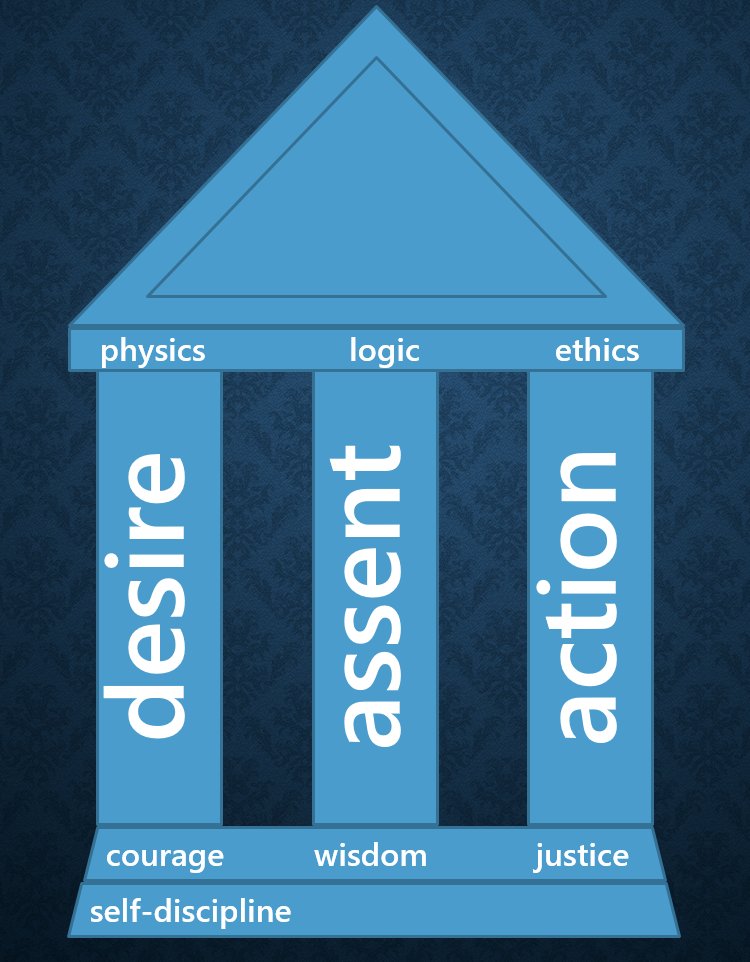How does man touch god, with what part of his being, and when that part of him is in what sort of disposition?
13. Nothing is more miserable than one who is always out and about, running round everything in circles - in Pindar's words 'delving deep in the bowels of the earth' - and looking for signs and symptoms to divine his neighbours' minds. He does not realize that it is sufficient to concentrate solely on the divinity within himself and to give it true service. That service is to keep it uncontaminated by passion, triviality, or discontent at what is dealt by gods or men. What comes from the gods demands reverence for their goodness. What comes from men is welcome for our kinship's sake, but sometimes pitiable also, in a way, because of their ignorance of good and evil: and this is no less a disability than that which removes the distinction of light and dark.
These two passages reference two disciplines: assent and desire.
Remember, the discipline of assent is "refusing to accept within oneself all the representations which are other than objective or adequate." (Citadel p. 101) In a few words, it is being mindful about our judgements.
Also remember, the discipline of desire is "refusing to desire anything other than that what is willed by the Nature of All." (Citadel p. 129). In a few words, it is accepting our fate or the Nietzsche term "amor fati."
Book 2, passage 12, is one of many meditations by Aurelius about the acceptance of our death and the utter valuelessness of pleasure, pain, fear, vanity, fame. Change is constant, and the quicker we learn this, the more content we will be. We will be less "clingy" to things that are impermanent and which don't truly matter. We will be less gripped by fear of death and more willing to accept that one day, we will die. Functions of nature include, birth, growth, and death. We usually don't fear birth or growth, so why should we fear death?
"applause of vanity" - just let that sink in for a bit. Is that what you really want to live for? You really want to act in a way that will cause people to put their hands together and slap them making a noise? How fleeting and vain is applause. Soon the noise will stop and people will be distracted and looking on to the next big thing to clap for. And soon all those people who were clapping their hands will have forgotten their applause for you and soon the people clapping will have passed away and forgotten.
Book 2, passage 13 deals with both mindfulness of judgment (assent) and accepting things as they are (desire). We often see people who want to peer into the future and see into other people's hearts. These people want control and they want a short-cut to see. Marcus describes these people as looking into the earth, looking for signs and symptoms. None of this matters - it is out of our control and does not align with nature. It is enough to focus on your own mindfulness and to be content with what fate and the universe has dealt you.
Keep your thoughts and what you assent to pure. Don't focus your desires on things out of your control. If you desire something out of your control and you don't get it, you will be sad. If you desire for something not to happen and it is out of your control, you will also be sad. Instead, focus on things in your control - your attitude, having greater virtue, accepting your fate and even loving it.







